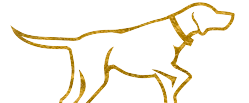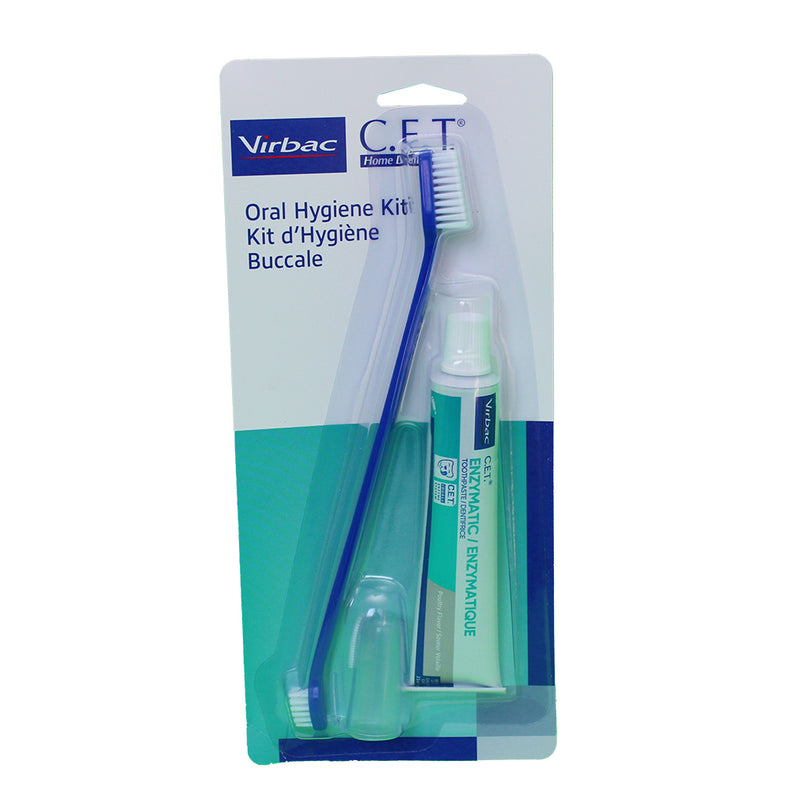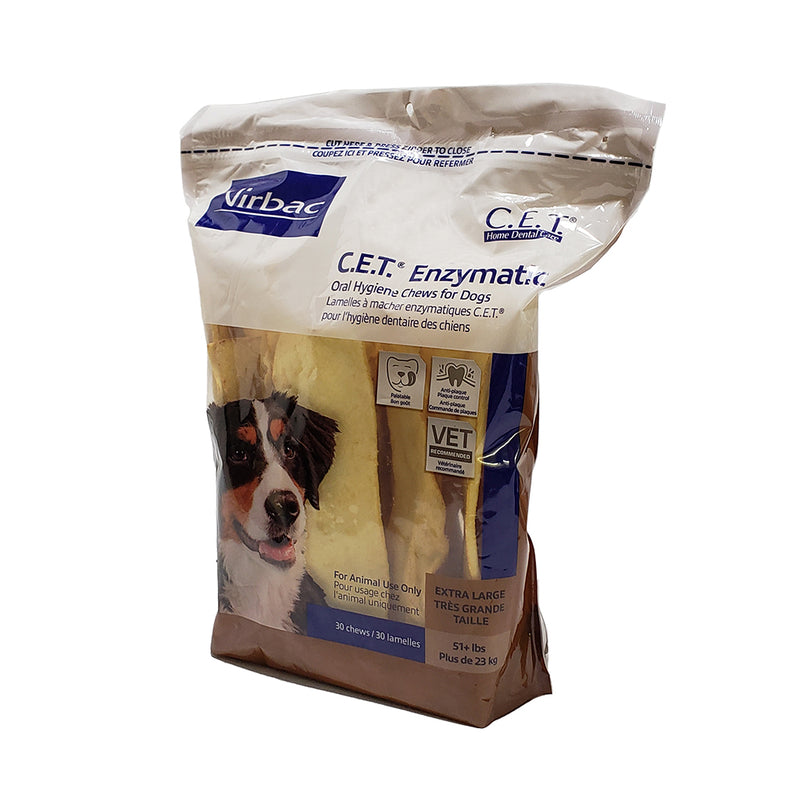Your Cart is Empty
Electronic Collars
Collars and Leads
Dog Tracking Systems
Dog Training
Bird Launchers
Hunting Dog Supplies
For The Hunter
Importance of Dog Dental Health
March 20, 2024 6 min read 1 Comment

Much like proper nutrition, exercise, and basic grooming, your dog’s dental care is just as important for your dog’s overall health. Poor dental hygiene can not only affect oral health in the way of pain and tooth loss, but also potentially result in other internal diseases if left unmaintained. A dog’s dental health can be easily preserved with a few simple steps that will be outlined below. To learn more about the signs of bad canine dental health, issues that may arise from poor dental hygiene, and ways to improve your dog’s dental care, please continue reading the following information.
Why is Dental Health Important?
Canine dental health is important for many reasons, some of which can lead to serious health issues if left gone too long. Dental health goes beyond simply keeping your dog’s breath fresh and their pearly whites nice and shiny. If left unmanaged, teeth will build up plaque, which then turns into tartar, or calculus, on the teeth and gum line. The accumulation of bacteria can have life-threatening consequences once it begins circulating in the bloodstream and settling into organs. As a result, what first began as a little plaque can develop into infections in the gums, tooth loss, and even organ disease. It’s vital to be aware of the signs and symptoms that may signal to poor dental health, such as the ones discussed below.
Signs of Bad Canine Dental Health
- Halitosis (bad breath, aka “Doggy Breath”)
- Excessive drooling
- Inflamed and/or bleeding gums
- Tumors in the gums
- Cysts under the tongue
- Loose teeth
Problems Resulting From Poor Canine Dental Hygiene
Inadequate dental health can lead to several problems that can worsen over time. Similar to human teeth, dog’s teeth suffer from many of the same problems that people can develop. Below is a list of known teeth issues that a canine can suffer from as a result of poor to neglectful dental hygiene.
- Broken teeth and roots
- Periodontal disease
- Kidney, liver, and/or heart disease
- Organ failure
- Abscesses or infected teeth
- Cysts or tumors in the mouth
- Malocclusion, or misalignment of the teeth and bite
- Broken (fractured) jaw
- Palate defects (such as cleft palate)
Periodontal disease is the most common dental condition in canine, and will often appear by age 3 of your dog. Periodontal disease is a gum infection that damages the gums and can destroy the jaw bone over time by weakening the structure of the tooth sockets and jaw bones. Not only will periodontal disease affect your dog’s dental health, but it can lead to array of other health problems consisting of damage to the kidneys, liver, and heart muscles.
Ways to Improve Your Dog’s Dental Care
Improving your dog’s dental health is very easy and can be done in several different ways. For best results, we recommend using multiple methods and varying it up from time to time to ensure overall good dental health. Our recommended methods include brushing your dog’s teeth, using dental wipes, and supplying your dog with dental treats and chews. As with our own teeth, it is also recommended to go in for a professional cleaning at a veterinarian at least once per year.
Brushing Your Dog’s Teeth
One of the best at-home methods of dental hygiene for your dog might also be one of the most difficult. Brushing your dog’s teeth can pose as a challenge, especially if your dog is not too fond of the idea. It is best to start when your dog is a puppy with a set routine that you can stick to. Similar to trimming nails, your dog will adjust to it over time. A dog’s teeth do not need brushed on a daily basis, but the more often the better. We recommend at least once per week. Brushing a dog’s teeth is done very similar to that of humans; you use a tooth brush and tooth paste, but these are specialized for canines. DO NOT use human tooth paste on your dog; human tooth paste contains chemicals that are toxic to dogs. It is recommended to use canine tooth paste, which is specially formulated for dogs and comes with yummy favors like peanut butter and chicken.
Virbac makes an enzymatic toothpaste which supports canine gum health and reduces plaque formation. We carry the beef and poultry favors of the Virbac toothpaste which we have found makes brushing teeth a little easier if they like the taste of the toothpaste.
A canine toothbrush is also specially designed to fit in your dog’s mouth. Canine toothbrushes have much smaller heads than human toothbrushes and the bristles are reverse angled and soft. Some canine toothbrushes like the Virbac CET Dual-Ended Toothbrush have two heads that are different shapes and sizes to allow for better cleaning of different sized teeth. There are also styles that fit over your finger, similar to an infant gum toothbrush.
Dog Tooth Wipes
Dog Tooth Wipes, like our Lion Country Supply Dental Wipes, is a great solution for those dogs that won’t let you brush their teeth or as alternating method to brushing teeth. Dental wipes reduces antimicrobial activities reducing the plaque, dental calculus, and tartar build-up on the dog’s teeth. Dog teeth wipes also kill bacteria that cause bad dog breath. The best part of dental wipes is how easy they are to use, just simply left your dog’s lip and wipe over their teeth and gums.
Canine Dental Solution Water Additives
One of the main causes for bad breath or doggy breath is bad oral health. Part of human dental health routines is often the use of a mouth wash. But try giving your dog mouth wash and see what happens. First off, never give your dog mouth wash as it can be very toxic to pets! Second, mouthwash would be very unpleasant to a dog and good luck ever trying to brush their teeth or do any dental work after that experience. The best option for freshening up your dog’s breath and supporting their oral hygiene would be the use of dental solution water additives. Products like the Vibrac Aquadent Fresh Dental Solution are additives that you add to your dog’s water. You can even use these additives daily if desired. These additives often contain ingredients like Inulin which is a natural prebiotic to help control bad breath and natural extracts which work as natural antioxidants.
Dog Dental Treats
One of the easiest ways to improve your dog’s dental health is dog dental treats. Your dog will think they are getting a treat, but these treats are specially designed and usually contain additives to clean their mouth, freshen their breath, and remove dental plaque. Dental treats, such as the Greenies Dental Chews and the Virbac C.E.T Chews, come in a variety of size, shapes, and flavors to ensure the best results for your dog.
Dog Chews
Dog chews come in many different shapes, sizes, and styles but they all use the same principle of chewing to remove plaque and to clean their teeth. In nature, a dog’s only way to clean their teeth is to chew on bones and sticks, so it’s only second nature to want to chew on things.
Some examples of dog chews would be:
Professional Cleaning
The absolute best way to get your dog’s teeth clean is by a professional cleaning done at most veterinarian offices. Just like human teeth, no matter how well you clean them, there are always spots that are missed and can only be cleaned by a professional. A veterinarian is also trained to notice any health issues that could be present during the cleaning session. To perform a professional cleaning, the veterinarian will most often sedate your dog with general anesthesia to ensure the best results and veterinarian safety during the cleaning procedure and examination.
Conclusion
Everyone wants to keep their dogs as healthy as possible. With canine dental health, just a few minutes of brushing every week or even just the occasional dental treat goes a long way to maintaining oral health. The next time you comment about your dog’s bad breath, consider asking yourself, “Am I providing adequate dental care?”
Thanks for reading. What is your favorite way to keep your dog’s teeth healthy?
- Michael Cassatt, Director of Marketing1 Response
Leave a comment
Comments will be approved before showing up.

Subscribe
Sign up to get the latest on sales, new releases and more …







Keith Pearce
April 05, 2021
Just had one of my dogs teeth cleaned. She had serious teeth issues when born and when being cleaned my vet found she had embedded teeth that were not even suppose to be there, removing 19 of her teeth some extra and some normal. She is now a new and totally happy dog. I recommend tooth health for your dogs health and happiness.